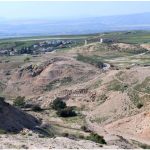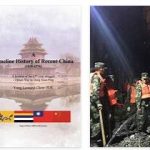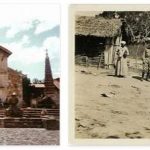In the area, which has been inhabited since prehistoric times, emerged in the 11th / 12th centuries. In the 19th century the Mosi kingdoms Tenkodogo, Yatenga, Gurma and Ouagadougou (Wagadugu), whose god-kingship based on African traditions (ruler title: Moro Naba) prevented their Islamization, although some Nabas became Muslims. Thanks to their military strength, the kingdoms were able to establish rule over indigenous peoples and against the kingdoms of Mali and Songhai exist. In 1896 the French conquered the area. In 1919 the colony of Upper Volta was constituted and incorporated into French West Africa, but dissolved in 1932 and divided between Ivory Coast, French Sudan (Mali) and Niger. As part of the French Union, Upper Volta was restored as an independent colony in 1947. On December 11, 1958, it received autonomy within the French Community as the Republic of Volta (renamed Upper Volta in 1959).
France granted Upper Volta to independence on August 5th, 1960. Maurice Yaméogo (* 1921, † 1993) became president. After unrest, army chief General Sangoulé Lamizana (* 1916, † 2005) resigned Yaméogo in 1966 and took over the leadership of the country as head of state himself. 1974-77 all political parties were banned. After a government formed predominantly from civilians in 1976, a new democratic constitution adopted by referendum in November 1977 and parliamentary elections held in April 1978, General Lamizana was re-elected president in May 1978.
The bloodless coup led by Colonel Saye Zerbo (* 1932) in November 1980 opened a series of military coups in which Thomas Sankara (* 1950, † 1987) finally became head of state in August 1983. Following the example of Libya, he created a new system of government and nationalized land. In order to make the intended new beginning of his country evident, he renamed it on August 4, 1984 in Burkina Faso (composed of several languages, for example “Fatherland of Dignity”). In foreign policy, Burkina Faso placed under Sankara continued the relationship with France that had been initiated in the 1960s and 1970s and sought a compromise with Libya and Algeria. In 1975 and 1985 it got into a border conflict with Mali over a small strip of land (Agacher area), in which mineral resources were suspected. After a military coup in October 1987 against Sankara and after his assassination, B. Compaoré became president. From the parliamentary elections in 1992 went the ODP / MT (Organization pour la démocratie populaire / Mouvement du travail), whose leader Compaoré was the winner. In the 1997 parliamentary elections and the 2001 local elections, the CDP (Congrès pour la Démocratie et le Progrès), which emerged from the ODP / MT and other parties, was able to expand its leading position. Compaoré was re-elected for a further seven years in the 1998 presidential election. As a result of electoral reforms, opposition parties recorded significant gains in the 2002 parliamentary elections for the first time; the CDP was only just able to maintain its absolute majority. In April 2004 the trial of 13 alleged coup leaders was opened who were charged with plotting to overthrow President Compaoré in September 2003. Their alleged leader was sentenced to ten years in prison.
According to loverists, in the presidential elections on November 13, 2005, incumbent Compaoré was confirmed with 80.3% of the vote. Twelve candidates were allowed to participate in the elections. The constitutional court had rejected the complaint of opposition politicians not to allow the president to run for another term because a constitutional amendment of 2000 allowed two five-year terms and, in the opinion of the court, did not count the previous two seven-year terms.
In the 2007 parliamentary elections, the CDP won 73 of the 111 parliamentary seats. As expected, incumbent Compaoré emerged from the presidential elections on November 21, 2010 as the clear winner and was confirmed for another term of office with around 80% of the votes. However, less than half of the total of 7 million eligible voters had registered for the vote. In 2011, increases in food prices sparked social unrest. After a mutiny by the Presidential Guard due to non-payment of wages in April 2011, Compaoré appointed a new head of government to stabilize the domestic political situation. Tens of thousands fled to Burkina Faso in 2012 before the civil war in neighboring Mali. President Compaoré made a name for himself as a mediator in the conflict. In order to prevent the fighting from spreading to Burkina Faso, the former colonial power France delivered three reconnaissance planes and military vehicles.
In the parliamentary elections on December 2, 2012, the CDP won 70 out of 127 seats. The opposition raised allegations of manipulation. In April 2013, the International Court of Justice (ICJ) determined the border between Burkina Faso and Niger. In 2010, the two states submitted their dispute, which dates back to 1927, to the ICJ and agreed to the arbitration award. At the end of June 2013 there were demonstrations against Compaoré’s plan to introduce a second chamber of parliament (Senate). Oppositionists expressed the suspicion that the associated constitutional reform should serve to lift the term limit and Compaoré to enable a further term of office beyond 2015. In the period that followed, the conflict issue, constitutional amendments, remained decisive for the country’s domestic policy.








